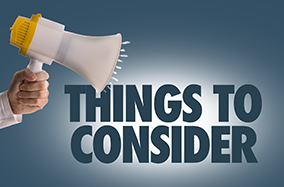
When you’re buying or selling a home, there are so many details to look after that it’s easy to miss something. One thing you don’t want to forget is insurance.
Once your property has sold, you’ll need to contact your insurance company to let them know the date that ownership of your property will be transferred (the “closing date”). They’ll arrange to cancel your insurance once you’re no longer the owner of that property.
If you’ll be taking possession of your new home, and leaving your current property vacant for a period of time, you’ll need to make sure both properties are insured. This may also apply to a condominium even if the unit is completely empty. (Contact your insurance company to ask about continuing liability coverage while discontinuing the insurance on contents.)
When you purchase a new home, don’t leave the insurance to the last minute. Contact your insurance company right away. Make sure they are aware of all the features of the new home that may reduce your premiums, such as alarms, and wired-in smoke detectors.













